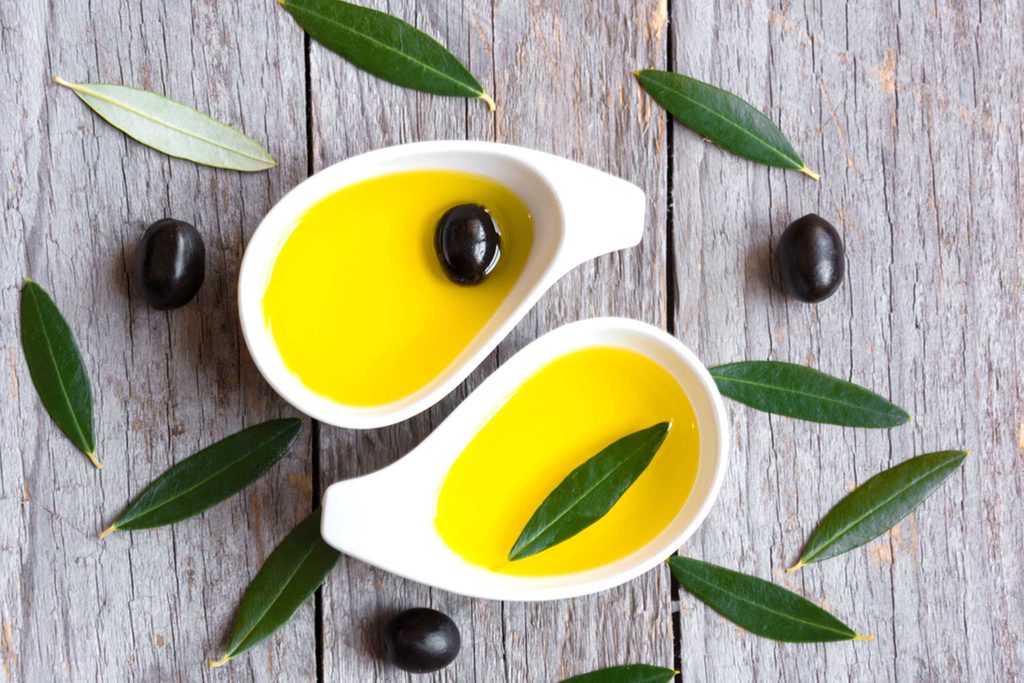Science Just Proved Olive Oil Can Stave Off Alzheimer’s—Here’s Why
Updated: Sep. 29, 2020
If you're still mourning the news that coconut oil isn't the superfood you thought, let us shift your focus to this well-loved oil, which has now been shown to help ward off Alzheimer's disease.
 The Mediterranean diet is known to promote heart health, brain function, and mental health. Now researchers at the Lewis Katz School of Medicine at Temple University have found that extra-virgin olive oil, a key component of the Mediterranean diet, helps prevent against cognitive decline.
The Mediterranean diet is known to promote heart health, brain function, and mental health. Now researchers at the Lewis Katz School of Medicine at Temple University have found that extra-virgin olive oil, a key component of the Mediterranean diet, helps prevent against cognitive decline.
In their study, published in the Annals of Clinical and Translational Neurology, the researchers were able to show that consuming extra-virgin olive oil protected memory and learning ability. It also reduces the formation of amyloid-beta plaques and neurofibrillary tangles in the brain—classic markers of Alzheimer’s disease, according to eurekaalert.org.
Here’s how it works to aid memory and fight Alzheimer’s: Olive oil specifically reduces brain inflammation but also activates autophagy, the process that balances sources of energy at critical times in development and in response to nutrient stress. It will also remove aggravated proteins, damaged organelles, and other intracellular pathogens, according to the National Institutes of Health.
The study examined brain cells from mice that were fed food enriched with extra-virgin olive oil and found that the cells showed higher levels of autophagy and reduced levels of amyloid plaques and phosphorylated tau. According to eurekaalert.org, phosphorylated tau is responsible for neurofibrillary tangles, which are suspected of contributing to the nerve cell dysfunction in the brain that is responsible for Alzheimer’s memory symptoms.
The relationship between extra-virgin olive oil and dementia was tested by using an Alzhemier’s disease model (triple transgenic model), where the animals developed three signs of the disease: memory impairment, amyloid plaques, and neurofibrillary tangles. One group of mice ate a diet enriched with extra-virgin olive oil and the other group ate a diet without the oil starting when the mice were six months old (the time before symptoms of Alzheimer’s appear).
The mouse group that consumed the olive oil performed much better on memory tests and learning abilities at age 9 and 12 months compared to the mouse group that did not consume the oil. Tests also showed vast differences in brain tissue when it came to nerve cell appearance and function. Mice that consumed the oil showed synaptic integrity—meaning the connections between neurons in the brain were well preserved. They also showed autophagy activation, which in the end means they were better able to fight off Alzheimer’s.
Based on the animal findings—which are presumed to mirror the dynamic in humans, Dr. Domenico Praticò, a senior investigator, went as far to say that extra-virgin olive oil is better than fruits and vegetables alone at preserving cognition.
While the study did not say how much extra-virgin olive one has to consume to get the benefit, you can incorporate more extra-virgin olive oil in your diet by swapping out your normal salad dressing with some extra-virgin olive oil and balsamic vinegar, or by following the Mediterranean diet.
Don’t miss these other foods that are good for your brain.